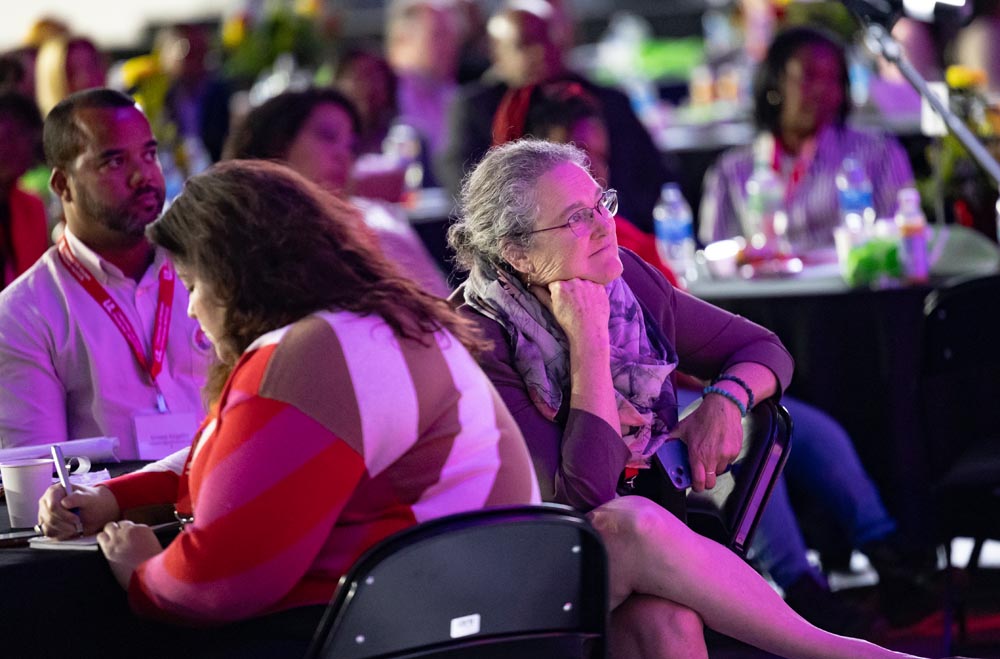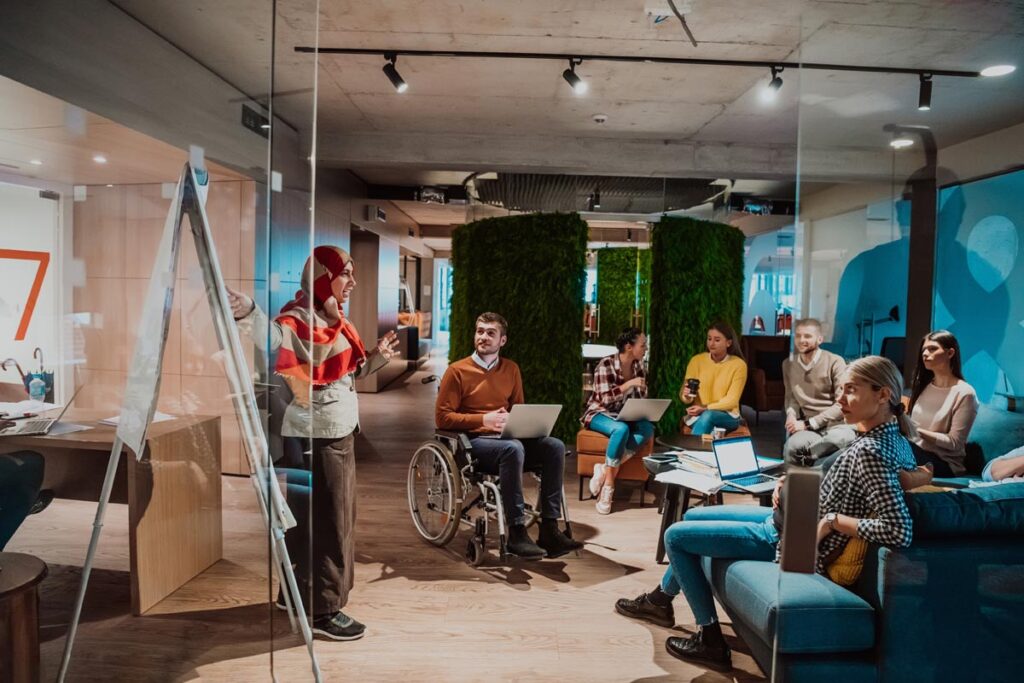We need to ensure dignity and belonging for all in the workplace – how people are treated affects how they treat others.

Effects of Bias in the Workplace
To foster a society in which everyone belongs, it is essential to address bias in all areas where intergroup social interaction occurs, including the workplace. Whether in education, healthcare, philanthropy, the justice system, or any other sector, the goal of promoting belonging and dignity can enhance the success and experience of both individuals within the organization and the communities they serve. For students to reach their potential, patients to receive quality health care, and everyone to be treated with respect in the justice system, those who work in those crucial sectors must themselves receive fair treatment. For example, robust research supports that when teachers, healthcare providers, and those who work in our justice system experience positive work environments, they are more likely to be effective and to stay in their jobs. When bias and discrimination pervade these workplaces, the outcomes are particularly dire. Studies have shown the harmful consequences of bias based on race, ethnicity, and gender, in maternal care, and student achievement outcomes.
We also know that bias and stereotyping can affect hiring and evaluation of performance. An early field study was conducted by Bertrand and Mullainathan’s, Are Emily and Greg More Employable than Lakisha and Jamal? demonstrated the existence of bias by sending around resumes for open job positions. Half of the resumes used stereotypically “White” names like Greg and Emily, and the other half used stereotypically “Black” names like Lakisha and Jamal. As might be expected, roughly a third more “White” resumes received callbacks for interviews.
Even when workplaces value fairness and want to ensure representation of people of all groups, implicit bias can get in the way. A study in Sweden coupled the resume study (using Arab names) with testing hiring managers with implicit and explicit tests. They found that scores indicating implicit bias against Arab people correlated with the likelihood of a callback and that biases against Arab people included assumptions related to workplace performance. There’s also no guarantee once we get a job that we will be evaluated fairly. A variety of studies—including one conducted by our Research Advisors Jerry Kang and Nilanjana Dasgupta—also demonstrate that stereotyping influences people’s evaluation of excellence.
Certain interventions have been shown to help decrease the influence of bias in hiring and evaluation
Having clear, agreed-upon, prioritized criteria for a position and reducing the number of subjective gray areas helps minimize opportunities for bias. Acknowledging that bias may be at work and inviting others to critique hiring and evaluation practices can also help. In some scenarios, like in orchestras, using blind auditions has helped increase diversity. Finally, some research shows that priming those in power with egalitarian values can lead them to pay closer attention to information that contradicts stereotypes of women and people of color, helping reduce prejudice over time.






From the classroom to the workplace, bias against natural hair can undermine the ability for black women to be their full selves, regardless of how they choose to wear their hair.
The “Good Hair” Study: Explicit And Implicit Attitudes Toward Black Women’s Hair

